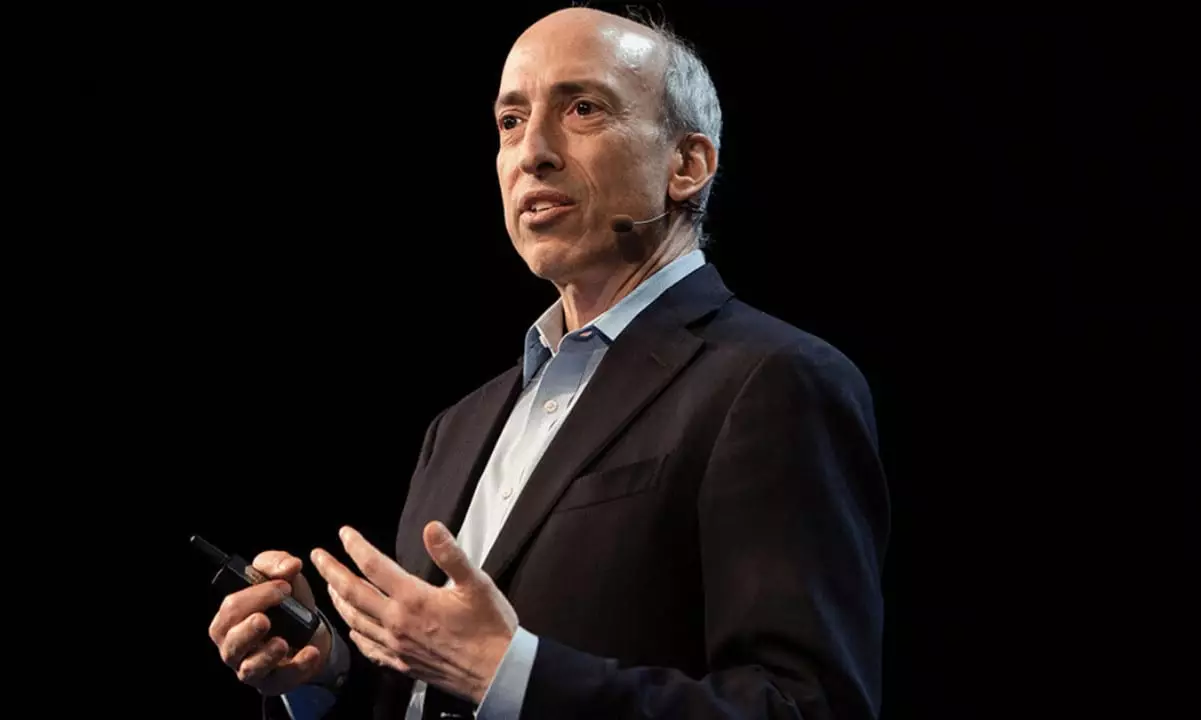The landscape of cryptocurrency is fraught with volatility, complexity, and, unfortunately, pitfalls for unwary investors. Recently, Gary Gensler, former chair of the Securities and Exchange Commission (SEC) and now an esteemed professor at MIT, has raised valid concerns about the crypto market that deserve more attention than they are receiving. His comments underscore a pressing issue: the overwhelming reliance on market sentiment rather than solid economic fundamentals when it comes to almost all digital assets. Here are seven key reasons why Gensler’s cautions should provoke a re-evaluation of one’s approach to cryptocurrency investments.
The Mirage of Market Sentiment
Gensler’s assertion that crypto assets are nearly entirely driven by “sentiment” rings alarmingly true. A vast proportion of altcoins, many of which can only be described as speculative, often surge or plummet based on social media trends or market whims rather than on underlying value propositions. This creates a precarious investing environment where one’s financial future could hinge on an ill-timed tweet or meme. It is vital for both new and seasoned investors to delve deeper into the financial underpinnings—or lack thereof—of these tokens. In essence, considering sentiment without a grounding in fundamentals is akin to sailing a ship during a storm with no map.
Bitcoin’s Unique Standing
Contrary to altcoins, Gensler highlighted Bitcoin’s unique positioning in the digital asset realm, suggesting its higher likelihood of longevity due to widespread global interest. This is certainly worth considering; Bitcoin has over a decade of operational history and a substantial user base that underscores its viability compared to less established counterparts. However, investors must remain wary even of Bitcoin, as its fortunes can still swing unpredictably based on mining regulations, investor behavior, and governmental interventions. For individuals looking for a “safe bet” in crypto, Gensler’s analysis suggests that Bitcoin, analogous to gold, is the best ally—albeit one not immune to unpredictability.
The Stateless Nature of Crypto Regulations
Gensler also raised critical points regarding how the expanding realm of cryptocurrencies is often operating without adequate regulatory oversight. He noted that many “sentiment-driven” tokens are unlikely to provide sustained value, and the absence of sound regulation poses a risk not just to individual investors, but also to the integrity of financial markets at large. An inconsistent regulatory environment leads to a breeding ground for fraud and misinformation, which threatens the foundational fabric of what cryptocurrency should stand for: innovation and democratization of finance. Thus, investors must strive for knowledge and vigilance in an area where lax oversight may obscure potential risks.
The U.S.-China Tariff Landscape
Gensler also connected financial market volatility to significant policy uncertainties, particularly reflecting on U.S.-China trade relations. His insights into how external economic factors can influence digital asset markets should weigh heavily on investors’ minds. Rapid changes in tariffs can create ripple effects not only in traditional markets but also in the heavily intertwined world of cryptocurrencies where investor decisions are often swayed by geopolitical events. This interdependence emphasizes the importance of a broader perspective in investments, one that considers how policies can also lead to sudden capital outflows, as evidenced by the recent $800 million outflow from digital asset investment products.
The Potential of AI in Trading
In his recent discussions, Gensler acknowledged the transformative impact of artificial intelligence on various sectors, including crypto trading. While AI can unearth trading patterns and optimize transaction speeds, Gensler’s point that it is not yet fast enough for high-frequency trading serves as a reminder: technology alone does not replace the need for sound judgment and due diligence. Indeed, the human intuition and ethical boundaries still hold paramount importance in navigating the murky waters of investment—especially in the rapidly evolving world of cryptocurrency.
Assessing Risk with Personal Reflection
Perhaps one of Gensler’s more poignant observations revolves around personal risk assessment. He implies that any engagement in the crypto market should be approached with a healthy skepticism and a thorough evaluation of the fundamentals underlying each asset. Taking the time to understand what one invests in is not just a personal responsibility—it’s essential for long-term sustainability in an unpredictable market. Awareness of potential losses, rather than mere gains, can fortify one’s investment mentality against irrational exuberance.
A Call for Discernment
Gensler’s warnings provide a clarion call for discernment in an increasingly feverish crypto marketplace. The allure of rapid wealth generation obscures the necessary foundational analysis. In this digital currency gold rush, being informed and patient, rather than swept up in the frenzy, is what will ultimately differentiate successful investors from those who find themselves in financial peril. By adopting a cautious, educated, and critically discerning approach, individuals can navigate this high-stakes environment while maximizing their opportunities for success.


Leave a Reply